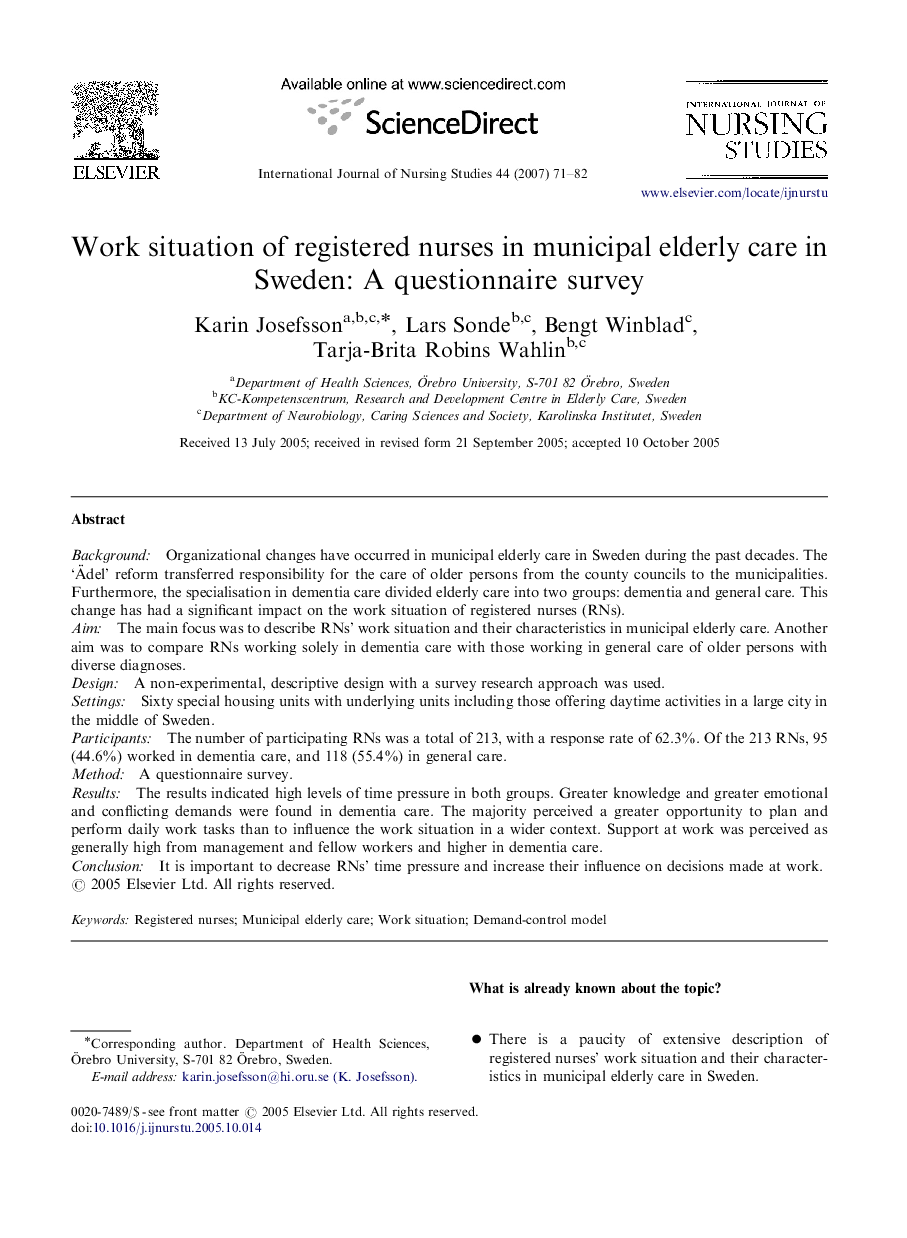| Article ID | Journal | Published Year | Pages | File Type |
|---|---|---|---|---|
| 1077874 | International Journal of Nursing Studies | 2007 | 12 Pages |
BackgroundOrganizational changes have occurred in municipal elderly care in Sweden during the past decades. The ‘Ädel’ reform transferred responsibility for the care of older persons from the county councils to the municipalities. Furthermore, the specialisation in dementia care divided elderly care into two groups: dementia and general care. This change has had a significant impact on the work situation of registered nurses (RNs).AimThe main focus was to describe RNs’ work situation and their characteristics in municipal elderly care. Another aim was to compare RNs working solely in dementia care with those working in general care of older persons with diverse diagnoses.DesignA non-experimental, descriptive design with a survey research approach was used.SettingsSixty special housing units with underlying units including those offering daytime activities in a large city in the middle of Sweden.ParticipantsThe number of participating RNs was a total of 213, with a response rate of 62.3%. Of the 213 RNs, 95 (44.6%) worked in dementia care, and 118 (55.4%) in general care.MethodA questionnaire survey.ResultsThe results indicated high levels of time pressure in both groups. Greater knowledge and greater emotional and conflicting demands were found in dementia care. The majority perceived a greater opportunity to plan and perform daily work tasks than to influence the work situation in a wider context. Support at work was perceived as generally high from management and fellow workers and higher in dementia care.ConclusionIt is important to decrease RNs’ time pressure and increase their influence on decisions made at work.
